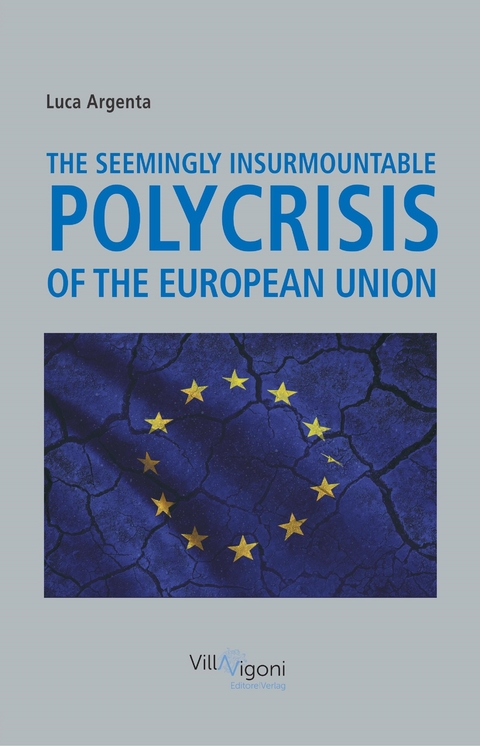
The Seemingly Insurmountable Polycrisis of the European Union
Seiten
2022
|
1. Erstauflage
Nova MD (Verlag)
978-3-98595-325-7 (ISBN)
Nova MD (Verlag)
978-3-98595-325-7 (ISBN)
The European Union is experiencing its most challenging period since the beginning of its institutional history. In fact, over the last fifteen years multiple crises have posed severe strains on the Union. This study avails of the term “polycrisis” to best represent this peculiar time. “Polycrisis” is a two-fold word. On the one hand, “poly” has to be interpreted as “many” from the ancient Greek “πολύς”(polús). This multitude refers to the several crises that undermine the European Union.
On the other hand, “poly” as “city” from “πόλις” (polis), understood as a European community whose principles and values are now under pressure. Closely linked to some specific policy areas, this polycrisis is also an institutional crisis whose postponements, uncertainties and internal rifts have characterised these years. The survival of the European Union is at stake, and this potential destructiveness is the starting point for the study of the polycrisis.
From this perspective, the European Union must choose between two options. The first implies remaining a half-completed project, failing to solve its internal crises and surrendering to decline. The second implies that the Union bears the responsibility for the polycrisis, rediscovering its potentiality in order to solve its longstanding issues and partially changing itself to assure its own political future. This work focuses on the second option by analyzing the multiple crises, determining the crises for which the EU is responsible and, ultimately, proposing a feasible solution.
On the other hand, “poly” as “city” from “πόλις” (polis), understood as a European community whose principles and values are now under pressure. Closely linked to some specific policy areas, this polycrisis is also an institutional crisis whose postponements, uncertainties and internal rifts have characterised these years. The survival of the European Union is at stake, and this potential destructiveness is the starting point for the study of the polycrisis.
From this perspective, the European Union must choose between two options. The first implies remaining a half-completed project, failing to solve its internal crises and surrendering to decline. The second implies that the Union bears the responsibility for the polycrisis, rediscovering its potentiality in order to solve its longstanding issues and partially changing itself to assure its own political future. This work focuses on the second option by analyzing the multiple crises, determining the crises for which the EU is responsible and, ultimately, proposing a feasible solution.
Luca Argenta holds a BA in Political Science from University of Pavia (Italy) and Sciences Po Lille (France), a MA and MSc in European Studies and PhD (DPhil) in Politics from Europa-Universität Flensburg (Germany). He has been serving as research fellow at the Friedrich-Ebert Foundation in Rome (Italy) since June 2016. His research focuses on European affairs, German and Italian bilateral relations.
| Erscheinungsdatum | 23.04.2022 |
|---|---|
| Verlagsort | Deutschland |
| Sprache | deutsch |
| Maße | 150 x 210 mm |
| Themenwelt | Sozialwissenschaften ► Politik / Verwaltung ► Europäische / Internationale Politik |
| Sozialwissenschaften ► Politik / Verwaltung ► Vergleichende Politikwissenschaften | |
| Schlagworte | Außenpolitik • Demokratie • EU-Governance • Eurokrise • Europa • Finanzkrise • Institutionen • Integration • Krise • migrationskrise • Polykrise • Populismus • Sicherheitspolitk |
| ISBN-10 | 3-98595-325-2 / 3985953252 |
| ISBN-13 | 978-3-98595-325-7 / 9783985953257 |
| Zustand | Neuware |
| Haben Sie eine Frage zum Produkt? |
Mehr entdecken
aus dem Bereich
aus dem Bereich
Studienbuch
Buch | Hardcover (2023)
De Gruyter Oldenbourg (Verlag)
CHF 62,90
erfolgreiche Interessenvertretung durch Prozesskompetenz im komplexen …
Buch | Hardcover (2023)
Wiley-VCH (Verlag)
CHF 58,75


